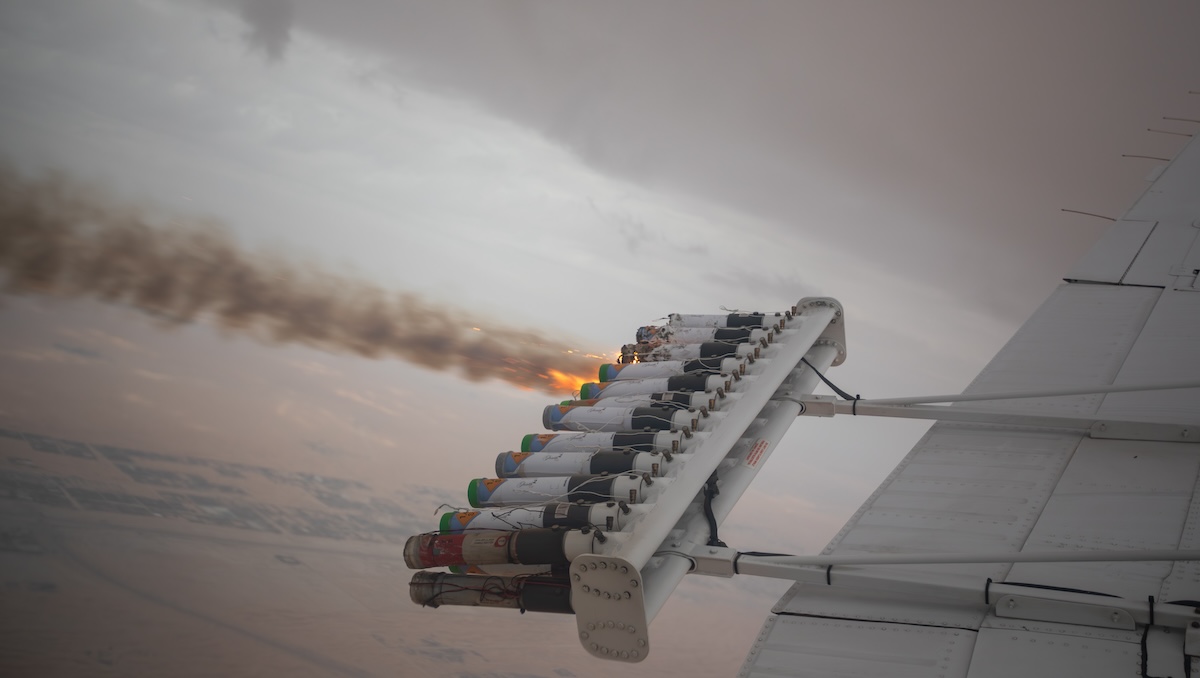What to Know
- The Korean Peninsula went from nuclear threats and missile tests to intimations of peace and cooperation
- The next step in a possible peace process is a forthcoming summit involving President Donald Trump
- "We have reached big agreements before but were unable to fulfill them," Kim noted, acknowledging skeptics
North Korean leader Kim Jong Un and President Donald Trump exchanged insults and threats of nuclear annihilation. Soft-spoken South Korean President Moon Jae-in struggled to be heard. And now Kim and Moon are meeting to discuss North Korea's nuclear weapons ahead of Kim-Trump talks scheduled for May or June.
Here's a look at the whirlwind of verbal exchanges between the leaders in the months before a critical moment in global diplomacy:
Jan. 1, 2017: Kim Jong Un says the country's preparations for launching an intercontinental ballistic missile have "reached the final stage."
Jan. 2: President-elect Donald Trump tweets: "North Korea just stated that it is in the final stages of developing a nuclear weapon capable of reaching parts of the U.S. It won't happen!"
May 9: Moon becomes the first liberal to take office in Seoul in a decade after winning a presidential by-election. In his inauguration speech, Moon proposes talks with Kim, saying, "I am willing to go anywhere for the peace of the Korean Peninsula — if needed, I will fly immediately to Washington. I will go to Beijing and I will go to Tokyo. If the conditions shape up, I will go to Pyongyang."
July 4: North Korea conducts its first flight test of an ICBM, which Kim declares part of the North's "package of gifts" for U.S. Independence Day.
U.S. & World
July 6: Moon in a speech in Berlin criticizes North Korea's nuclear weapons program, but also offers a "brighter future" for the North if it agrees to a "complete, verifiable, and irreversible denuclearization." He says Seoul will not push for regime change in the North, saying, "We do not wish for North Korea's collapse, and will not work toward any kind of unification through absorption." The North ignores Moon's proposal for talks on military and humanitarian issues for months.
Aug. 9: Trump says North Korea had best not make more threats or "they will be met with fire and fury like the world has never seen." North Korea hours later announces a plan to launch a salvo of missiles toward the U.S. territory of Guam, a major military hub in the Pacific, to "wring the windpipes of the Yankees." That salvo never happened.
Aug. 15: Moon in a televised speech says Seoul will "put everything on the line to prevent another war on the Korean Peninsula" and that the North Korean nuclear problem should "absolutely be solved peacefully."
Sept. 3: North Korea conducts its sixth and most powerful nuclear test, which it says was a detonation of a thermonuclear warhead designed for ICBMs. Moon vows to ramp up South Korea's capabilities and says dialogue between the Koreas has become "impossible" for the time being.
Sept. 19: Trump tells the U.N. General Assembly that the United States would "totally destroy North Korea" if forced to defend itself or its allies. He refers to Kim as "Rocket Man" and says he's "on a suicide mission for himself.""
Sept. 22: Kim accuses Trump of "mentally deranged behavior." He says he will "surely and definitely tame the mentally deranged U.S. dotard with fire."
Jan. 1, 2018: Kim says in his New Year's address that he has a nuclear button on his desk, but also calls for improved relations with South Korea. Trump soon responds that he has a bigger and more powerful nuclear button, "and my Button works!"
Jan. 9: North and South Korean officials meet in the border village of Panmunjom, and agree on North Korea sending athletes and delegates to the Olympics. North Korea sends hundreds of people to the games, including Kim's sister, who conveys her brother's desire for a summit with Moon.
March 7: After visiting Kim in Pyongyang, South Korean presidential national security director Chung Eui-yong says Kim is willing to discuss the fate of his nuclear arsenal with the United States and has expressed a readiness to suspend nuclear and missile tests during such talks.
March 9: Trump accepts Kim's invitation to meet, which the White House says will take place by the end of May.
April 18: Trump confirmed that his CIA chief secretly met with Kim in North Korea and said "a good relationship was formed" heading into the adversaries' anticipated summit.
April 19: Moon says Kim hasn't asked for the withdrawal of U.S. troops from the Korean Peninsula as a precondition for abandoning his nuclear weapons. If true, this would seem to remove a major sticking point to a potential nuclear disarmament deal.
April 21: North Korea says it has suspended nuclear and long-range missile tests and plans to close its nuclear test site as part of a move to shift its national focus and improve its economy. Trump tweeted, "This is very good news for North Korea and the World" and "big progress!"
April 25: Trump says Kim wants a historic, high-stakes meeting as soon as possible and that he has been "very open and I think very honorable from everything we're seeing."
April: 27: Kim and Moon meet at the border village of Panmunjom. Trump tweets, "KOREAN WAR TO END!"



